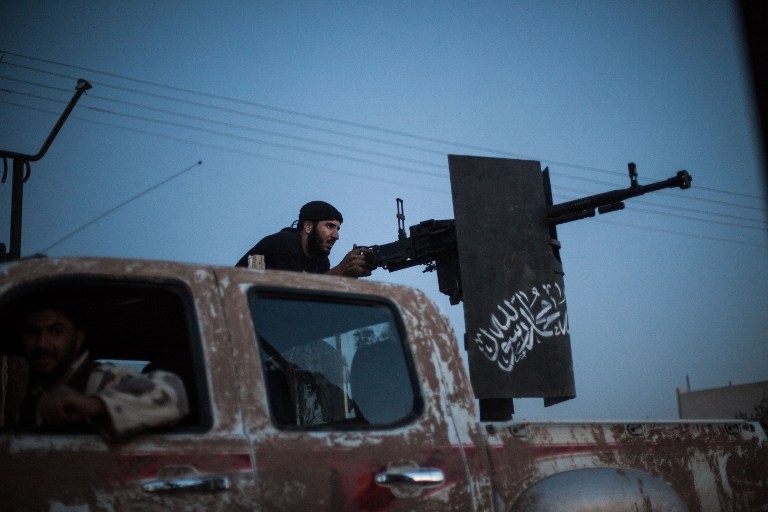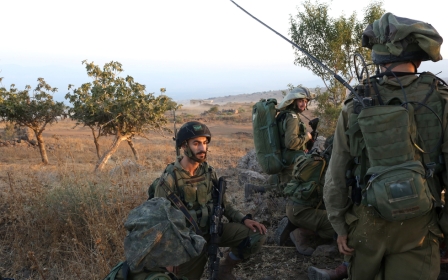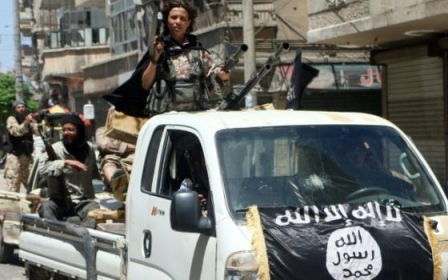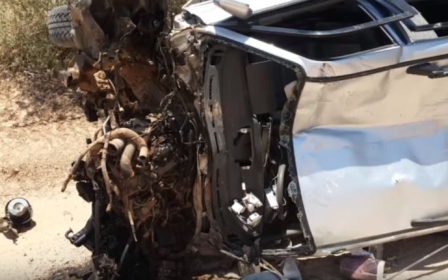Syrian rebels accused of abductions, torture and murder

Armed groups in rebel-held northern Syria including the al-Qaeda-aligned Nusra Front and Ahrar al-Sham have committed war crimes and imposed a strict version of Islamic law that in some cases of punishment amounts to torture, Amnesty International said in a report released on Tuesday.
The UK-based human rights group also named three other opposition factions - Nureddin Zinki, the Levant Front and Division 16 - in the report and said that five groups had carried out "a chilling wave of abductions, torture and summary killings" in the northern Aleppo and Idlib provinces and surrounding areas.
The groups have detained and tortured lawyers, journalists, and children - among others - for criticising them, committing acts seen as immoral, or being minorities, the report said.
"Many civilians live in constant fear of being abducted if they criticise the conduct of armed groups in power or fail to abide by the strict rules that some have imposed," said Philip Luther, head of Amnesty's Middle East and North Africa programme.
"In Aleppo and Idlib today, armed groups have free rein to commit war crimes and other violations of international humanitarian law with impunity," he added.
Amnesty said that some of the groups named were believed to have been supported by governments such as Qatar, Turkey, Saudi Arabia and the US, and called on regional powers to stop supplying them with arms.
"States that are members of the International Syria Support Group including the USA, Qatar, Turkey and Saudi Arabia, which are involved in negotiations over Syria, must press armed groups to end such abuses and comply with the laws of war. They must also cease any transfer of arms or other support to groups implicated in committing war crimes and other gross violations,” said Luther.
The report is based on 24 accounts of abduction by anti-government groups between 2012 and 2016 and another five cases of torture.
Halim, a humanitarian worker, was kidnapped and tortured by Nureddin Zinki rebels in Aleppo city until he confessed to a crime.
"When I refused to sign the confession paper the interrogator ordered the guard to torture me," he told Amnesty, who used a pseudonym to protect his identity.
"He then started beating me with cables on the soles of my feet. I couldn't bear the pain so I signed the paper," Halim said.
Hardline Islamic groups operate their own religious courts which punish crimes such as apostasy or adultery with death, Amnesty said.
Both the Nusra Front and Ahrar al-Sham had established their own Sharia "justice systems" in areas they controlled, as well setting up unofficial prosecution offices, police forces and detention centres, it said.
They had also appointed judges, some of whom had no knowledge of Sharia, and applied a strict version of Islamic law that imposed punishments amounting to torture or ill-treatment.
Saleh, also a pseudonym, told Amnesty he was held by the Nusra Front in late 2014, and was told by his guard that five women accused of adultery would "only be forgiven by death".
He said he later watched a video showing Nusra militants publicly killing one of the women in the style of an execution.
Amnesty said it documented violations in Idlib, where Nusra is present alongside other rebel groups, and Aleppo.
Syria's conflict began in March 2011 with anti-government protests but has since broken down into all-out war, leaving more than 280,000 people dead.
The majority of the war's victims have been killed by pro-government forces, which have conducted indiscriminate air strikes in rebel-held areas.
Amnesty said that it had documented war crimes and crimes against humanity on a mass scale by Syrian government forces, as well as by the Islamic State (IS) group.
Rebel groups in northern Syria have clashed with government forces, IS militants and Kurdish rebels in the course of the five-year war.
"While some civilians in areas controlled by armed opposition groups may at first have welcomed an escape from brutal Syrian government rule, hopes that these armed groups would respect rights have faded as they have increasingly taken the law into their own hands and committed serious abuses,” said Luther.
“It is critical that Russia and the USA, and the UN special envoy to Syria, prioritise detention by government forces and abduction by armed groups during their ongoing [peace] talks in Geneva. For its part the UN Security Council must impose targeted sanctions on leaders of armed groups who are responsible for war crimes.”
New MEE newsletter: Jerusalem Dispatch
Sign up to get the latest insights and analysis on Israel-Palestine, alongside Turkey Unpacked and other MEE newsletters
Middle East Eye delivers independent and unrivalled coverage and analysis of the Middle East, North Africa and beyond. To learn more about republishing this content and the associated fees, please fill out this form. More about MEE can be found here.




